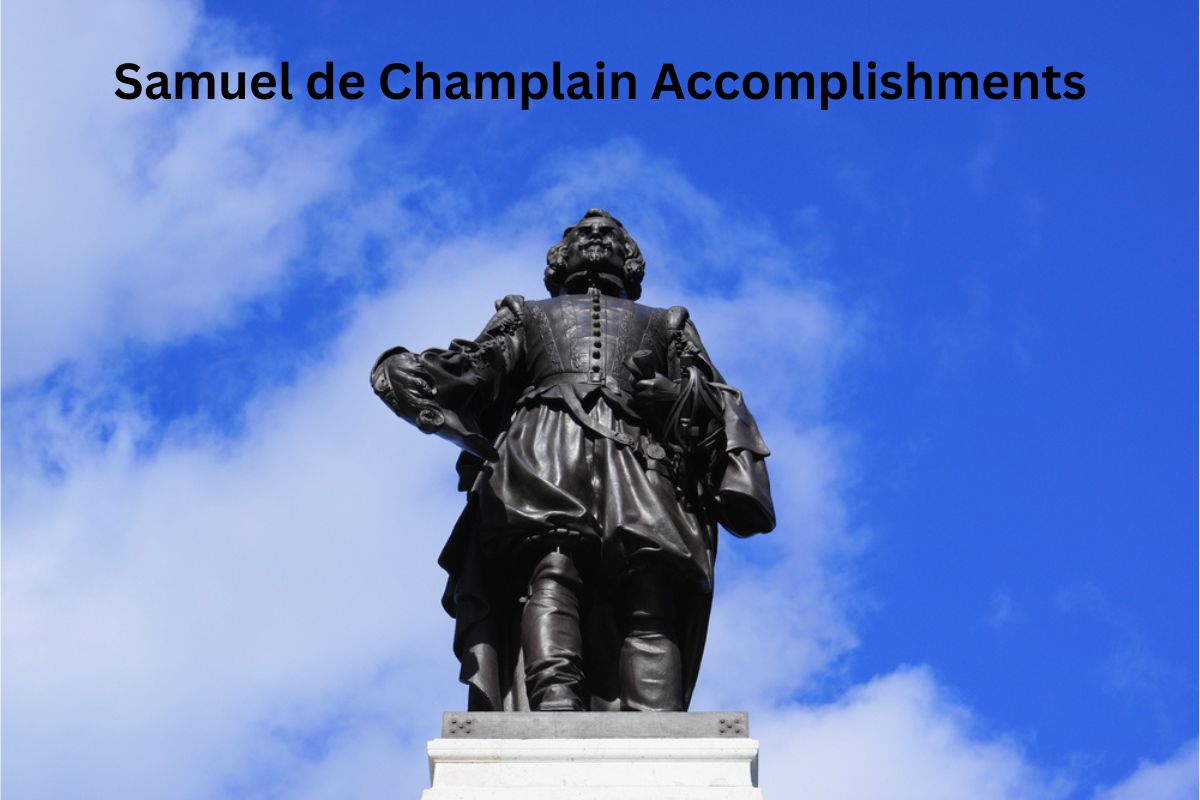Samuel de Champlain (1567-1635) was a French explorer, cartographer, and diplomat whose accomplishments played a pivotal role in shaping the early history of North America.
Known as the “Father of New France,” Champlain’s legacy encompasses a range of achievements, from the founding of key settlements to his intricate mapping, diplomacy with indigenous communities, and contributions to literature and religion.
His impact on the exploration and colonization of the continent left an indelible mark on the course of history.
Accomplishments of Samuel de Champlain
1. Founded Quebec in 1608
Samuel de Champlain’s most significant achievement was the founding of Quebec, a key city that played a pivotal role in the colonization of New France.
In 1608, Champlain established a permanent settlement at the confluence of the St. Lawrence and St. Charles Rivers, naming it “Quebec.”
Also Read: Facts about Samuel de Champlain
This strategic location allowed for easier access to the interior of North America and facilitated trade and communication with both European and indigenous partners.
2. Explored and mapped the St. Lawrence River
Champlain conducted several voyages along the St. Lawrence River, exploring and meticulously mapping its various segments. His accurate maps improved navigation for future explorers, traders, and settlers.
By charting the river’s course, identifying its islands and natural features, and recording important geographical details, Champlain provided essential information for the effective colonization and development of the region.
3. Established trade relationships with Native American tribes
Champlain recognized the value of establishing positive relationships with the indigenous peoples of North America.
He cultivated alliances with tribes such as the Huron and Algonquin, fostering trade partnerships that were essential for the survival of the French colonies.
Champlain’s ability to build trust and collaboration with these Native American groups not only facilitated the fur trade but also contributed to a relatively peaceful coexistence during the early stages of colonization.
4. Created detailed maps of North American coastlines
Champlain’s cartographic talents were instrumental in advancing European understanding of North American geography.
He created highly detailed and accurate maps of the regions he explored, including the St. Lawrence River, the Atlantic coastline, and areas around the Great Lakes.
Champlain’s maps provided crucial information for subsequent explorers, traders, and settlers, guiding their journeys and helping them navigate previously uncharted territories with more confidence.
These maps also contributed to a more comprehensive understanding of the continent’s topography and layout.
5. Explored and mapped the Great Lakes
Champlain’s exploration extended beyond the St. Lawrence River. He ventured westward and became the first European to document the Great Lakes, including Lake Ontario and Lake Huron.
By mapping these vast bodies of water and the surrounding areas, Champlain significantly expanded European knowledge of North America’s interior. His exploration of the Great Lakes opened up new avenues for trade, as well as the potential for further westward expansion.
6. Contributed to settlements in Acadia
Champlain’s involvement in the colonization of Acadia, a region that includes parts of present-day Canada and the northeastern United States, showcased his commitment to establishing French presence in North America.
He played a role in the foundation of Port Royal (now Annapolis Royal, Nova Scotia) in 1605. This settlement marked one of the earliest European footholds in the area and laid the foundation for future French influence in Acadia.
Although Acadia would change hands between the French and the British multiple times, Champlain’s efforts played a role in shaping its early colonial history.
7. Acted as a diplomat between colonists and tribes
Champlain’s diplomatic skills were crucial in maintaining relationships with various Native American tribes. He recognized the importance of alliances and peaceful coexistence for the success of the French colonies.
Champlain’s ability to communicate and build trust with indigenous leaders helped prevent conflicts and ensured the continued operation of the fur trade. His diplomacy laid the foundation for positive interactions between French colonists and Native American communities.
8. Promoted Christianity among indigenous peoples
As a devout Catholic, Champlain saw his explorations as an opportunity to spread Christianity among the indigenous peoples he encountered.
He believed that converting the Native Americans to Christianity was not only a religious duty but also a means of cultural assimilation. Champlain’s efforts to introduce Christian teachings and practices had a lasting impact on the spiritual and cultural landscape of the region.
9. Wrote about his explorations in “Voyages”
Champlain’s written accounts of his travels and experiences, particularly in his work “Voyages,” were significant literary contributions of his time.
These writings provided invaluable insights into the geography, natural resources, indigenous cultures, and interactions with the Native American tribes.
His detailed descriptions and observations continue to be valuable historical records for researchers and scholars studying the early exploration and colonization of North America.
10. Established French influence in North America
Samuel de Champlain’s enduring legacy lies in his role as one of the key figures in establishing French influence in North America. His exploration, mapping, settlement efforts, and diplomatic skills helped shape the foundations of New France.
The city of Quebec, which he founded, remains an important cultural and historical center, and his efforts in diplomacy and trade relationships laid the groundwork for the unique relationship between French colonists and indigenous peoples.
Champlain’s legacy extends beyond his lifetime, as he played a pivotal role in shaping the course of early North American history.
